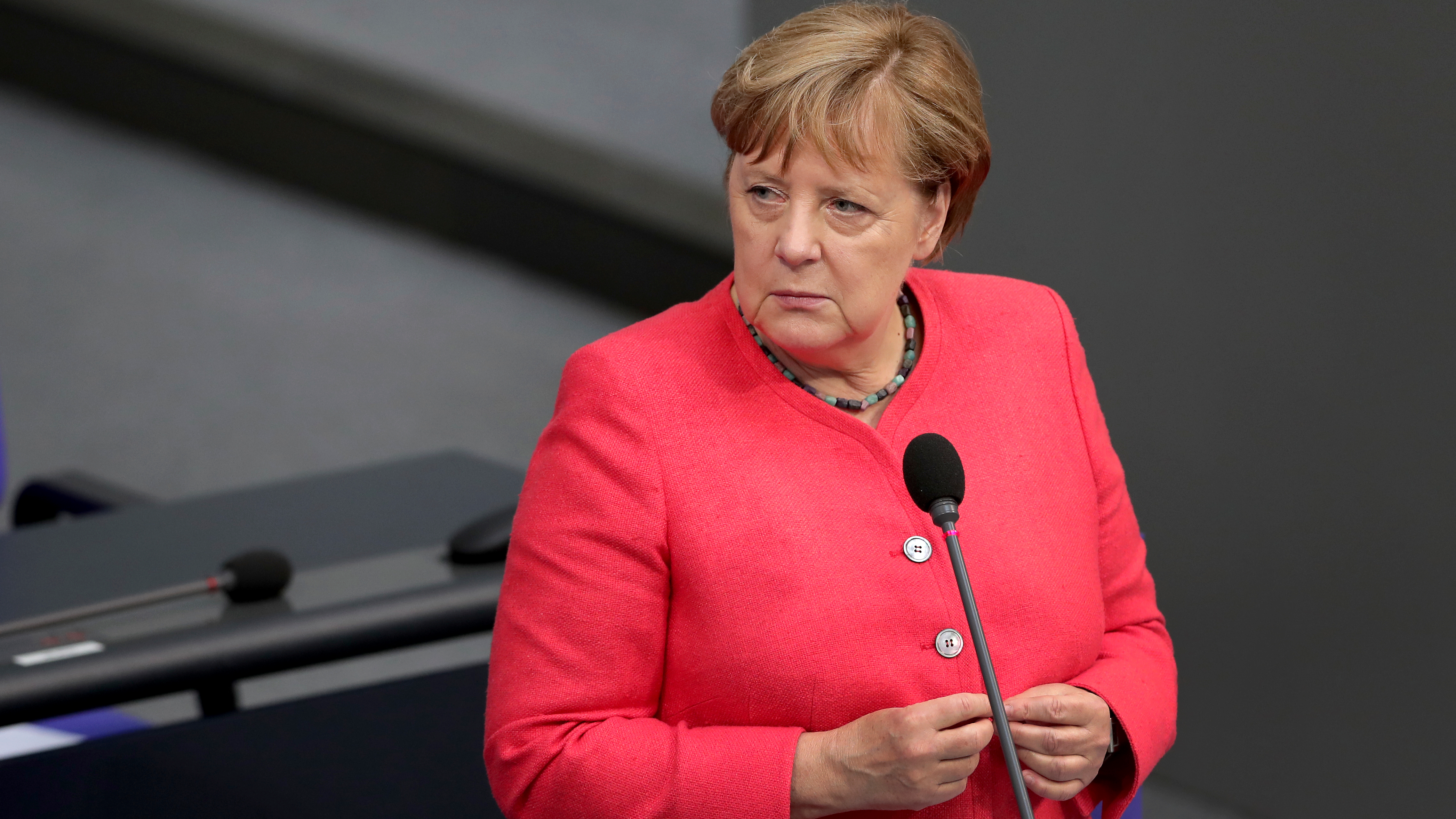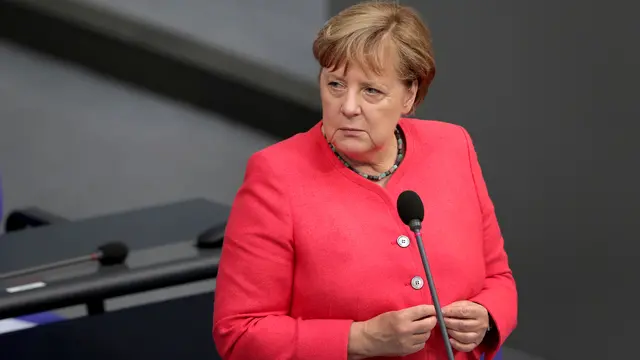
Merkel was speaking as Germany takes over the rotating presidency of the EU. /AP
The European Union must prepare for the possibility that talks with the UK over their future relationship could fail to reach a deal, German Chancellor Angela Merkel said on Wednesday.
"I will keep pushing for a good solution, but the EU and Germany, too, must and should prepare for the case that an agreement is not reached," the German leader told the Bundestag, as Europe's biggest economy takes over the presidency of the 27-member bloc.
The UK officially completed its delayed departure from the European Union on 31 January, following a referendum in 2016 in which 51.8 percent of people voted to leave.
London and Brussels now have until the end of December to strike a new agreement on trade or end their half-century relationship without specific plans for how they intend to trade or coexist in other fields.
Without a new agreement, ties would be reduced to minimum standards set by the World Trade Organization for countries that do not have their own trade deals – which generally means higher tariffs and more permissions and paperwork needed for exports and imports.
After several months of disruption during the coronavirus pandemic, the EU and Britain on Monday launched an intense five weeks of negotiations on a deal to define their post-Brexit relations, with London keen to wrap-up things quickly.
A key issue of contention is Britain's state-aid rules, which UK Prime Minister Boris Johnson has so far failed to lay out. Brussels wants stipulations in place that would stop the UK from undercutting EU-based businesses and economies.
In their opening position on the negotiations, Brussels stated that it wants EU standards to be a "reference point" on state aid. This would give power to the European Court of Justice, which London is reluctant to have as an arbiter on the UK's economic policy.
In a Twitter thread posted last week, the UK's negotiator, David Frost, wrote: "UK sovereignty, over our laws, our courts, or our fishing waters, is of course not up for discussion."
The UK intends to implement its "own regime of subsidy control" that would go beyond the World Trade Organization's "Agreement on Subsidies and Countervailing Measures," as detailed in its negotiating document. Both sides would inform the other every two years "on any subsidy granted within its territory."
With both entrenched in their positions, Johnson has often stated that the UK was ready to accept the consequences of no deal being reached if common ground cannot be found.
Merkel had also sharpened her tone, questioning in an interview if London really wanted a deal.
A deal would have to be done by the autumn to give national parliaments, as well as the EU parliament, enough time to ratify the agreement by the 31 December date when the current "transition" period ends.
Source(s): AFP
 简体中文
简体中文

